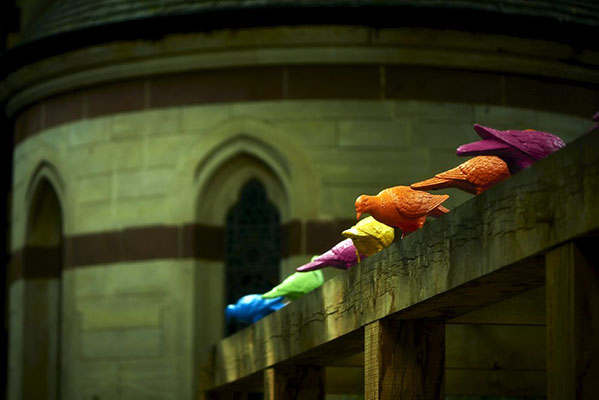At this year’s Victorian Premier’s Literary Awards, which are, as the assembled audience was reminded of, the most financially lucrative of any literary awards in Australia, there was a palpable sense of putatively Leftist bonhomie. Under the watchful eye of newish Labor Premier Daniel Andrews each recipient of a prize made reference to the failing Coalition government in Canberra. It was, after all, held only a few days after Prince Philip’s knighthood when the first ructions of a leadership spill against Tony Abbott were making headlines. What was remarkable was the ad hominem, shrill tone of the attacks. Only Jill Jones, winner in the Poetry category for her remarkable volume The Beautiful Anxiety was adept at raising an issue – climate change. There was though a self awareness at the awards, and a humorous one at that, with Wheeler Centre director Michael Williams jovially surmising towards the close of the ceremony that it was a rather ‘Bolshie’ affair.
I do not want to challenge what constitutes leftwing activity in institutional Victoria, nor do I want to focus on any of the recipients. I did most definitely enjoy myself. I was though struck by Martin Foley’s speech, which asserted that he was not the Minister for Arts but the Minister for Creative Industries. What was sinister here was how art, in this case literary expression, was being yoked to the market without a thorough thinking through of what that might involve. How else do we know what the value of the arts are if there is no money to determine it? On several occasions Foley made it clear that we need to make the arts economically viable. We were being told in no uncertain terms there would be no sit down money for artists. Artists, of course, do not need to be starving to make good work. We see this most obviously in the reverse – the starving do not a priori make better art than those who are sated. But what does the Creative Industries mean for those of us who exist in the gift economy? And, for those of us who may want to work uncreatively?
Poetry exists, for the most part, outside the market. This is not to say that there is not market logic in a lot of poetry, but that poetry does not lead to material riches. There are no Jeff Koons in the poetry world. Superstar poets are tenured academics, which is an upper middle class socioeconomic position at best dependent of course on dependents. Some poets who are nationally well regarded and have an international publishing record and good qualifications still struggle to make ends meet without dependents. For the most part this is because poetry is a gift economy – very little money changes hands. One sees this in the administrative burden of poetry. The curators, reviewers, bureaucrats of the poetry world are poets and they all work hard to keep poetry going without being paid. If you go to a poetry reading as an audience member there is very little chance you will pay. This is not Australian pub rock in its early days when bands made hand over fist by getting a cut of the entry takings. Poets are doing it for love not money. It is then about status, about honour rather than material. We could reflect on why this is the case, but we could also ask people like Minister Foley how he intends to make poetry pay and what that involves for poets. Are poets expected to come up with creative lines of copy to sell new products? Are poets expected to charge their large and wealthy audiences admission prices to listen to them live as if a reading were an elite sports-match? How are people expected to make a financial living from their art when the market itself does not value the activity? These questions are even more acute when we consider both the proposed deregulation and withdrawal of funding for many departments in universities. Universities are only the most obvious place to look for poetry, but people who write poetry and are based at universities are teachers and critics, academics foremost, rather than poets. We could highlight too the reluctance to provide grants for poetry ‘start-ups’. Poets it seems must work heteronomously if they want to survive. The resistance to the market is futile we are told. Join now! It’s free!
The term Creative Industries is also indebted to a particular aesthetic idea of what counts as art. If Foley wants to be minister for that department, perhaps we need a counter position in a Ministry of Uncreative Industries. What I think we need to encourage is the re-contextualisation of poetry, including its marginalised kinds, so that it exists in situations that might at first seem to be indifferent, perhaps even hostile or inimical, to it. We need residencies for poets in various autonomous economies then rather than as apparatchiks within Creative Industries; not as a form of corporate social responsibility but its antithesis. For that we could turn to the examples offered by many small scale endeavours from bike co-operatives in West Philadelphia where each worker is also an ‘owner’ to factories in Argentina that are run on communalist lines after the collapse of the economy there due to big business to the global activist network Blockadia that has encouraged the occupation of land slated for fracking. Perhaps then we will actually be approaching a ‘Bolshevik’ state in the best possible way.






